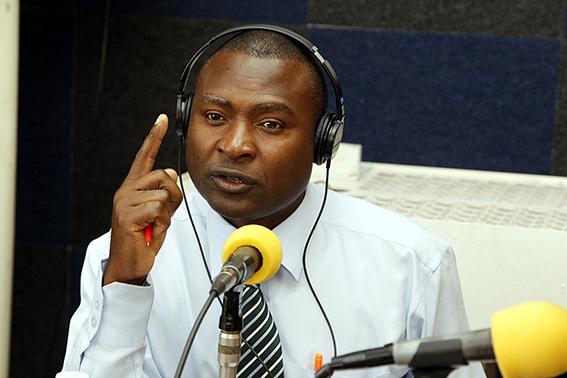Socialist Party Member of the National Mobilization Committee Frank Bwalya has rated Zambia’s current economic situation as bad. Mr. Bwalya, who is on a branch formation drive in Copperbelt Province, said many Zambians are not affording basic things such as food and bus fares.
He said the recent improvement in the national inflation rate is not a sign of economic improvement. Featuring on SUN FM Radio in Ndola, Mr. Bwalya said low inflation rate does not translate into reduced goods and services and emphasised that real economy is about affording food.
“The current economic situation in the country is bad and it is in the public domain. I will give this example of a church service that I attended on Sunday. I knew that attending that church service, the platform that was given was not supposed to be a political platform and that I wasn’t there to politic but politicians should speak about the struggles of the people, the disappointments and so on. And I struggled to find what to say in that church service because a platform was given to speak to the people but as I was sitting there praying, the choir sang a song ‘Tulefuluka Kenani’ mu Calo tamuli insansa. We are missing the land of Canaan, there is no happiness in the country, and there is no happiness in the land,” Mr. Bwalya said.
“That is an economic statement and it perfectly reflects what is happening in the country. Everywhere you go that is what is happening, the people are missing a situation where they can afford what Canaan represents. People are looking for a situation where they can afford a bus fare. People are looking for a situation where drivers, RTSA, the government and all stakeholders would be able to come to a round table, speak sense and ensure that those of our brothers and sisters who are running buses are able to be assisted to run their business smoothly. Not this unpredictability that we are seeing in the economy. Today you increase fuel, before people even realise this change has happened and then there is a small reduction. You increase by K5; you reduce by K3, very unpredictable that is in my view what can accurately describe the economic situation not only on the Copperbelt but in Zambia as a whole,” he said.
Mr. Bwalya added:”When we now zero in to the Copperbelt, there are certain factors of course that we may need to look at that may not apply to other areas. The Copperbelt as you know very well, this has been a mining province. That is why it is called Copperbelt. Not so much mining in Ndola but Ndola has benefited for many years from what has been happening on the Copperbelt. When you go to Luanshya, I was in Luanshya yesterday (Tuesday), I was told after a meeting with our members, this man tells me ba Father kabiyenifye mu market mulya.”
“People still call me Father (laughs) but they know very well that I am no longer a Catholic Priest, a serving Catholic Priest of course I was validly ordained and some people say once a Priest always a Priest but I want to make it clear that I don’t hang on to that title and maybe for political reasons or whatever I have made it clear and I am sure many people do see what is on my finger (wedding ring) that kwalibako bamo ku ng’anda. So this man says to me ba Father, ba Bwalya nga mwayafye mu market umuntu aleya amilombe 50 Ngwee. Nomba 50 Ngwee finshi wingashitamo? And said this is the situation kuno ku Luanshya. There is no economic activity to talk about.”
“When we talk about the real economy, the production of goods and services. When you talk about the real economy, ubunonshi bwa Calo bwaba mu mpoto (the real economy is in a cooking pot). When we talk about issues of inflation and so on. These are issues that can be tinkled here and there. They don’t practically reflect what would be happening on the ground,” Mr. Bwalya said.
